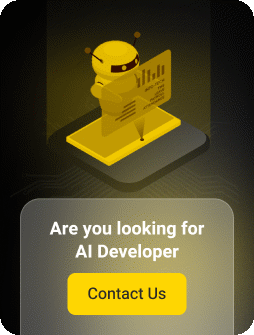Explore the concept of Agentic AI: its definition, how it operates, and its potential to transform industries by autonomously solving complex problems.
Artificial intelligence (AI) has seen remarkable advancements in recent years, with generative AI leading the charge. However, a new term is emerging in the AI landscape: 'Agentic AI.' While this concept may be unfamiliar to many, it’s one that is quickly gaining attention for its potential to reshape how we interact with intelligent systems.
We understand that this is something new, and many people might not be familiar with it yet. That’s why we’re here to explain what it’s all about and why it’s worth your attention.
What Is Agentic AI?
Agentic AI refers to artificial intelligence systems that are designed to work autonomously, without the need for constant human oversight. Unlike traditional AI, which typically requires detailed instructions or input to perform tasks, agentic AI can independently understand the user’s goals and the context of a given problem. Once it has this understanding, it takes proactive steps to achieve the desired outcome by making decisions and solving problems on its own.
How Does Agentic AI Work?
Agentic AI operates through a systematic process designed to solve complex problems autonomously.
Step 1: The AI Agent starts by collecting data from different sources like sensors, databases, and online platforms. It looks at this data to recognize important information and understand what’s happening in its environment.
Step 2: Once the data is collected, the Agent figures out what needs to be done. A large language model helps the Agent to make sense of the information, think through possible solutions, and choose the best way to approach the task. If needed, it can also work with other specialized tools for things like writing or image recognition.
Step 3: After planning, the AI Agent takes action. It uses external systems, software, or APIs to carry out tasks. The AI Agent can perform actions like making decisions or processing information, and it’s set up with rules to make sure it does things correctly.
Step 4: Finally, the AI Agent learns from its actions. As it completes tasks and receives feedback, it uses this new information to get better over time. This process helps the AI improve its performance and become more effective in solving future problems.
Important Note: Its feedback loops allow for ongoing learning and improvement, ensuring that each iteration becomes more efficient over time.
Why Is Agentic AI Important?
Agentic AI is essential for businesses because it streamlines complex tasks, reducing human intervention and minimizing errors. By automating decision-making and operations, it boosts efficiency and resource utilization.
What sets Agentic AI apart is its ability to learn and adapt. Over time, it refines its decision-making and problem-solving skills, becoming more capable as it gathers feedback. This continuous improvement ensures businesses benefit from increasingly smarter and more reliable performance.
Basically, Agentic AI helps businesses optimize processes, make better decisions, and maintain a competitive edge.
What Can Agentic AI Do?
Agentic AI is designed to work autonomously, making decisions and solving problems without constant human supervision. Unlike traditional AI, which relies on detailed instructions, Agentic AI can independently understand a user’s goals and the context of a problem. Once it has this understanding, it takes proactive steps to achieve the desired outcome.
This means Agentic AI can tackle a wide range of tasks, from automating processes and optimizing workflows to making real-time decisions. It can adapt to changing situations and continuously improve its performance, offering businesses a powerful tool for handling complex tasks and driving operational efficiency.
How Can Agentic AI Be Used?
Agentic AI’s ability to operate autonomously opens up numerous possibilities across various industries.
Since it can understand goals and the context of a problem without constant human input, it’s ideal for tasks or Agentic AI applications that require decision-making, problem-solving, and continuous adaptation.
1. Autonomous Customer Service
Agentic AI can be deployed in customer service systems to autonomously manage inquiries, process support tickets, and handle transactions. Utilizing natural language processing (NLP) and context-aware algorithms, it understands user intents and provides accurate, relevant responses, significantly reducing the need for human intervention.
2. Task Automation and Workflow Management
Agentic AI is capable of automating repetitive tasks such as data entry, scheduling, and generating reports. It integrates with enterprise resource planning (ERP) systems and customer relationship management (CRM) platforms to execute predefined workflows, reducing manual effort, increasing efficiency, and ensuring consistency across operations.
3. Proactive Decision-Making
Leveraging advanced machine learning models and real-time data analysis, Agentic AI can autonomously make complex decisions. It analyzes large volumes of data, identifies patterns, and executes actions to drive business outcomes—whether optimizing pricing models, adjusting inventory levels, or improving marketing strategies—without needing continuous human oversight.
4. Process Optimization
Agentic AI can be utilized to optimize business processes through continuous analysis of system performance and identification of bottlenecks. With reinforcement learning and predictive analytics, it proposes adjustments or directly takes corrective actions to improve operational efficiency, reduce waste, and enhance throughput.
5. Predictive Analytics and Recommendation Systems
With its ability to process vast datasets, Agentic AI excels at providing predictive insights and recommendations. Using techniques like regression analysis, time series forecasting, and collaborative filtering, it offers data-driven recommendations for business strategies, including inventory management, customer segmentation, and personalized marketing campaigns.
Agentic AI can be used in any situation where tasks can be automated, decisions can be made independently, and systems can continuously learn and improve.
How Much Does It Cost To Develop A Smart AI Agent?
The cost of developing smart artificial intelligence agents depends on various factors, as every project is unique and tailored to specific needs.
Here are some key considerations that can influence the overall cost:
- Purpose and Scope: Whether it’s for customer service, automation, analytics, or another use case, the complexity of the project matters.
- Features and Functionalities: Advanced features like machine learning, natural language processing, or real-time responses can impact development time and effort.
- Integration: Connecting the AI agent to existing systems (e.g., CRM, ERP) requires additional resources.
- Data Quality: Clean and structured data is essential, and data preparation may add to the cost.
- Scalability: If the AI needs to handle large volumes of users or data, the development requirements will increase.
- User Interface: Designing an intuitive and appealing interface can affect overall development.
- Ongoing Maintenance: Costs for updates, support, and troubleshooting should also be considered.
Note: The cost will depend on your unique needs and goals.
Looking to develop a smart AI agent? Contact Eminence Technology, an artificial intelligence agency, for expert solutions tailored to your requirements!
Final Thoughts
Agentic AI represents a breakthrough in artificial intelligence, offering businesses the ability to operate more efficiently, make smarter decisions, and automate complex tasks without constant human oversight. Its ability to understand goals, make autonomous decisions, and adapt to changing conditions makes it a valuable asset for any organization looking to stay competitive in today’s fast-paced world.
As businesses increasingly adopt Agentic AI, the opportunities for innovation and optimization are vast. From customer service to workflow management, decision-making, and predictive analytics, the applications are wide-ranging, with each offering the potential to drive significant improvements in operational efficiency and customer satisfaction.
For companies looking to leverage the full potential of Agentic AI, the time to explore its capabilities is now.
As AI technology continues to evolve, anyone that adopts and integrates it into their operations early will likely see the most benefit, setting themselves up for long-term success.













